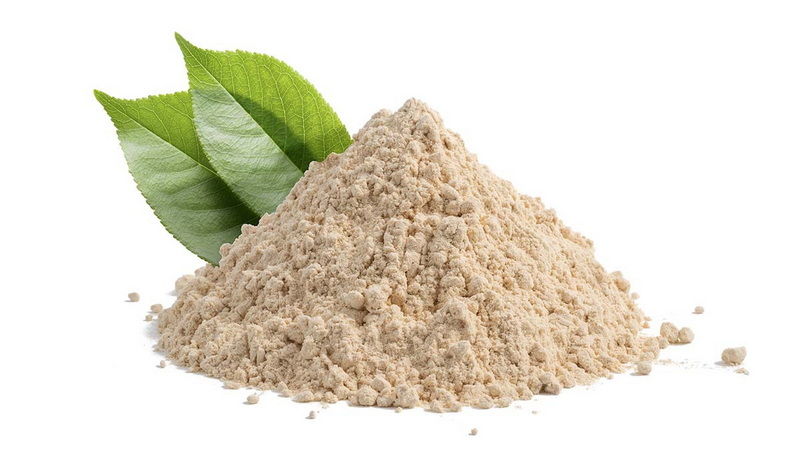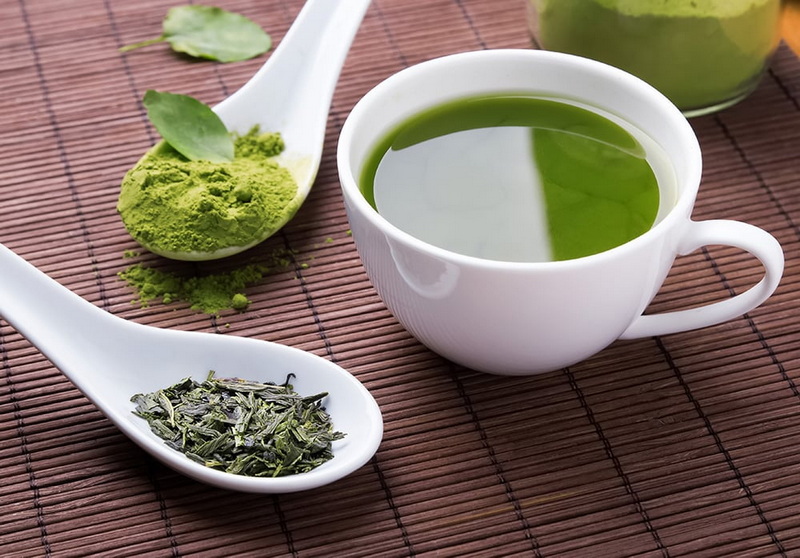Content Menu
● The Composition of Green Tea Leaf Extract
● Health Benefits of Green Tea Leaf Extract
>> Antioxidant Properties
>> Weight Management
>> Heart Health
>> Brain Function and Neuroprotection
>> Skin Health
>> Cancer Prevention
● How to Use Green Tea Leaf Extract
● Potential Side Effects and Precautions
● Choosing a Quality Green Tea Leaf Extract
● Incorporating Green Tea Leaf Extract into Your Routine
● Conclusion
● Frequently Asked Questions
>> 1. How much green tea leaf extract should I take daily?
>> 2. Can green tea leaf extract help with weight loss?
>> 3. Are there any side effects of taking green tea leaf extract?
>> 4. Can I use green tea leaf extract if I'm pregnant or breastfeeding?
>> 5. How does green tea leaf extract compare to drinking green tea?
● Citations:
Green tea leaf extract has gained significant popularity in recent years due to its potential health benefits. This concentrated form of green tea is packed with powerful antioxidants and bioactive compounds that may contribute to various aspects of human health. In this comprehensive article, we'll explore the many potential benefits and uses of green tea leaf extract, as well as its composition and possible side effects.

The Composition of Green Tea Leaf Extract
Green tea leaf extract is derived from the leaves of the Camellia sinensis plant, the same plant used to make various types of tea. The extract is a concentrated form of the beneficial compounds found in green tea, primarily polyphenols and catechins. The most abundant and well-studied catechin in green tea is epigallocatechin gallate (EGCG), which is believed to be responsible for many of the extract's health benefits.
Health Benefits of Green Tea Leaf Extract
Antioxidant Properties
One of the most significant benefits of green tea leaf extract is its potent antioxidant properties. Antioxidants help protect our cells from damage caused by free radicals, which are unstable molecules that can contribute to aging and various diseases. The catechins in green tea extract, particularly EGCG, are powerful antioxidants that can neutralize free radicals and reduce oxidative stress in the body.
Weight Management
Green tea leaf extract has been studied for its potential effects on weight management and metabolism. Some research suggests that the combination of catechins and caffeine in green tea extract may help boost metabolism and increase fat oxidation, potentially aiding in weight loss efforts.
Heart Health
Several studies have indicated that green tea leaf extract may have positive effects on cardiovascular health. The extract has been associated with reduced risk of heart disease, lower blood pressure, and improved cholesterol levels. The antioxidants in green tea extract may help protect the heart and blood vessels from oxidative damage and inflammation.
Brain Function and Neuroprotection
Green tea leaf extract contains compounds that may benefit brain health and cognitive function. The combination of caffeine and L-theanine in green tea has been shown to improve attention, memory, and reaction time. Additionally, some research suggests that the antioxidants in green tea extract may have neuroprotective properties, potentially reducing the risk of neurodegenerative diseases like Alzheimer's and Parkinson's.
Skin Health
The antioxidants in green tea leaf extract may also benefit skin health. Topical application of green tea extract has been shown to have anti-aging effects, potentially reducing the appearance of fine lines and wrinkles. The extract's anti-inflammatory properties may also help soothe skin conditions like acne and rosacea.
Cancer Prevention
While more research is needed, some studies suggest that the antioxidants in green tea leaf extract may have cancer-fighting properties. The extract has been shown to inhibit the growth of cancer cells and reduce tumor size in laboratory and animal studies. However, human studies have yielded mixed results, and more research is needed to fully understand the potential anti-cancer effects of green tea extract.
How to Use Green Tea Leaf Extract
Green tea leaf extract is available in various forms, including capsules, tablets, and liquid extracts. It can be taken orally as a dietary supplement or applied topically in skincare products. The appropriate dosage can vary depending on the specific product and intended use, so it's essential to follow the manufacturer's instructions or consult with a healthcare professional.
Potential Side Effects and Precautions
While green tea leaf extract is generally considered safe for most people when used in moderate amounts, it's important to be aware of potential side effects and precautions:
1. Caffeine sensitivity: Green tea extract contains caffeine, which may cause side effects like insomnia, nervousness, and increased heart rate in sensitive individuals.
2. Iron absorption: The tannins in green tea extract may interfere with iron absorption, so it's best to take the extract between meals.
3. Liver concerns: In rare cases, high doses of green tea extract have been associated with liver problems. It's essential to use the extract as directed and consult with a healthcare professional if you have any liver issues.
4. Interactions with medications: Green tea extract may interact with certain medications, including blood thinners and some antibiotics. Always consult with your healthcare provider before adding green tea extract to your supplement regimen.
Choosing a Quality Green Tea Leaf Extract
When selecting a green tea leaf extract supplement, consider the following factors:
1. Standardization: Look for products standardized to contain a specific percentage of catechins or EGCG.
2. Third-party testing: Choose supplements that have been tested by independent laboratories for purity and potency.
3. Reputable manufacturers: Select products from well-known, reputable companies with a history of producing high-quality supplements.
4. Organic certification: If possible, opt for organic green tea extract to minimize exposure to pesticides and other contaminants.
Incorporating Green Tea Leaf Extract into Your Routine
There are many ways to incorporate green tea leaf extract into your daily routine:
1. Take it as a supplement: Follow the recommended dosage on the product label or as advised by your healthcare provider.
2. Use it in skincare: Look for skincare products containing green tea extract or add a few drops of liquid extract to your moisturizer.
3. Add it to smoothies: Mix a small amount of green tea extract powder into your favorite smoothie recipe for an antioxidant boost.
4. Try it in baking: Incorporate green tea extract powder into baked goods like muffins or energy bars for added health benefits.
Conclusion
Green tea leaf extract offers a concentrated dose of the beneficial compounds found in green tea, potentially providing a wide range of health benefits. From its potent antioxidant properties to its potential effects on weight management, heart health, and cognitive function, green tea extract has garnered significant interest in the health and wellness community. While more research is needed to fully understand its effects, incorporating green tea leaf extract into your routine may be a simple way to boost your overall health and well-being.
As with any supplement, it's essential to use green tea leaf extract responsibly and consult with a healthcare professional before adding it to your regimen, especially if you have any pre-existing health conditions or are taking medications. By choosing a high-quality product and using it as directed, you can potentially harness the many benefits of this powerful natural extract.

Frequently Asked Questions
1. How much green tea leaf extract should I take daily?
The appropriate dosage of green tea leaf extract can vary depending on the specific product and intended use. Generally, doses ranging from 250-500 mg per day are common in many studies. However, it's essential to follow the manufacturer's instructions or consult with a healthcare professional for personalized advice.
2. Can green tea leaf extract help with weight loss?
Some studies suggest that green tea leaf extract may aid in weight loss by boosting metabolism and increasing fat oxidation. However, the effects are generally modest, and green tea extract should be used in conjunction with a healthy diet and regular exercise for optimal results.
3. Are there any side effects of taking green tea leaf extract?
While generally considered safe, some people may experience side effects from green tea leaf extract, including caffeine-related symptoms like insomnia or nervousness. In rare cases, high doses have been associated with liver problems. It's important to use the extract as directed and consult with a healthcare professional if you experience any adverse effects.
4. Can I use green tea leaf extract if I'm pregnant or breastfeeding?
Pregnant and breastfeeding women should exercise caution when using green tea leaf extract due to its caffeine content. It's best to consult with a healthcare provider before using any supplements during pregnancy or while breastfeeding.
5. How does green tea leaf extract compare to drinking green tea?
Green tea leaf extract is a concentrated form of the beneficial compounds found in green tea. While drinking green tea can provide similar benefits, the extract allows for a higher dose of these compounds without having to consume large quantities of tea. However, whole green tea also contains other beneficial compounds and provides hydration, so a combination of both may be ideal for overall health.
Citations:
[1] https://www.healthline.com/nutrition/10-benefits-of-green-tea-extract
[2] https://pmc.ncbi.nlm.nih.gov/articles/PMC6412948/
[3] https://health.clevelandclinic.org/green-tea-extract-a-better-way-to-boost-energy-or-not
[4] https://www.alamy.com/stock-photo/green-tea-extract.html
[5] https://www.youtube.com/watch?v=7-trYY-b8XU
[6] https://www.youtube.com/watch?v=vc-MXYKFqks
[7] https://www.webmd.com/vitamins/ai/ingredientmono-960/green-tea
[8] https://www.freepik.com/free-photos-vectors/green-tea-extract
[9] https://www.youtube.com/watch?v=eMuE16vLV_s
[10] https://www.medicalnewstoday.com/articles/269538





























